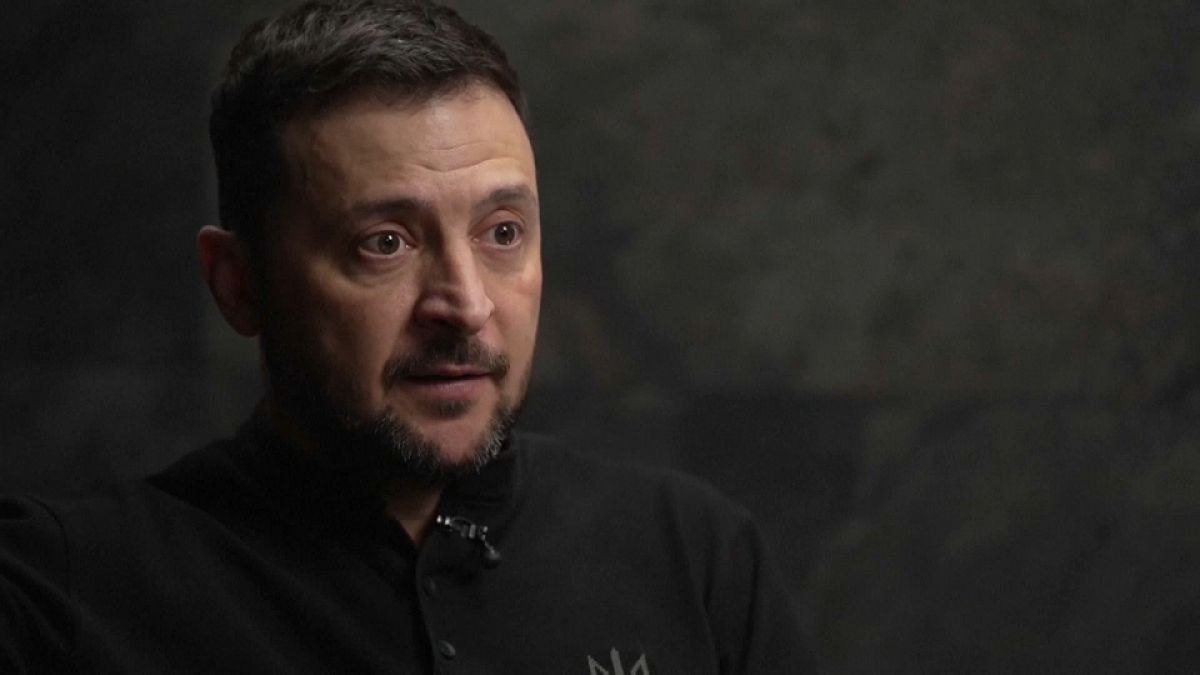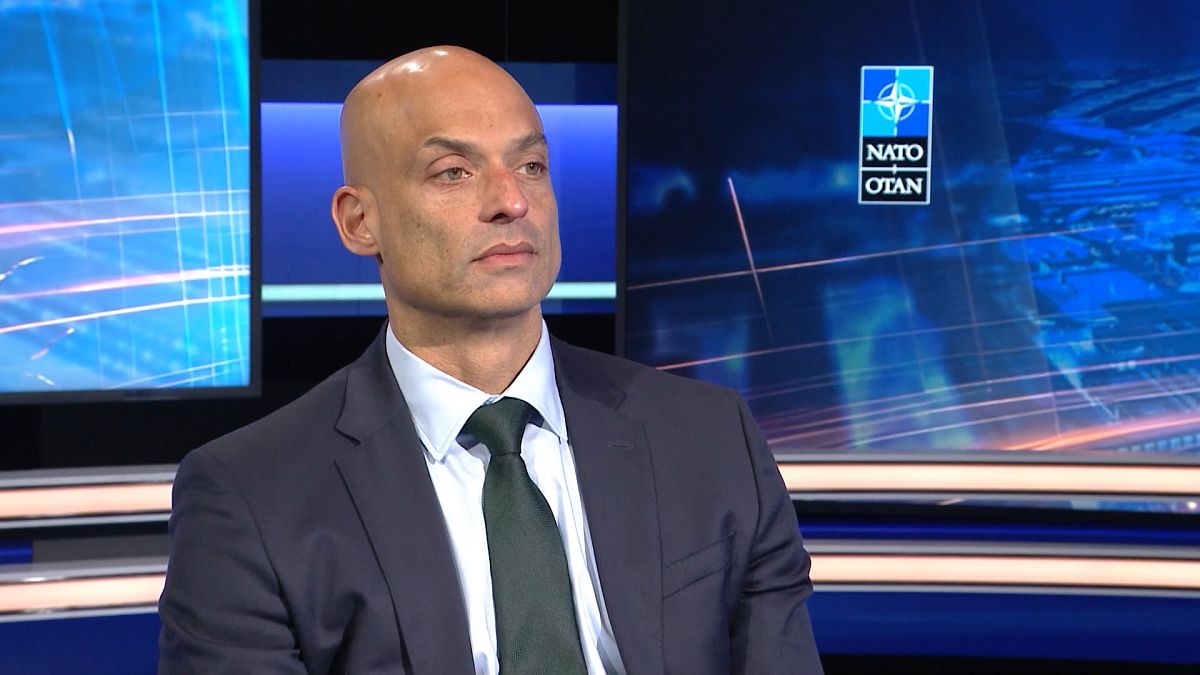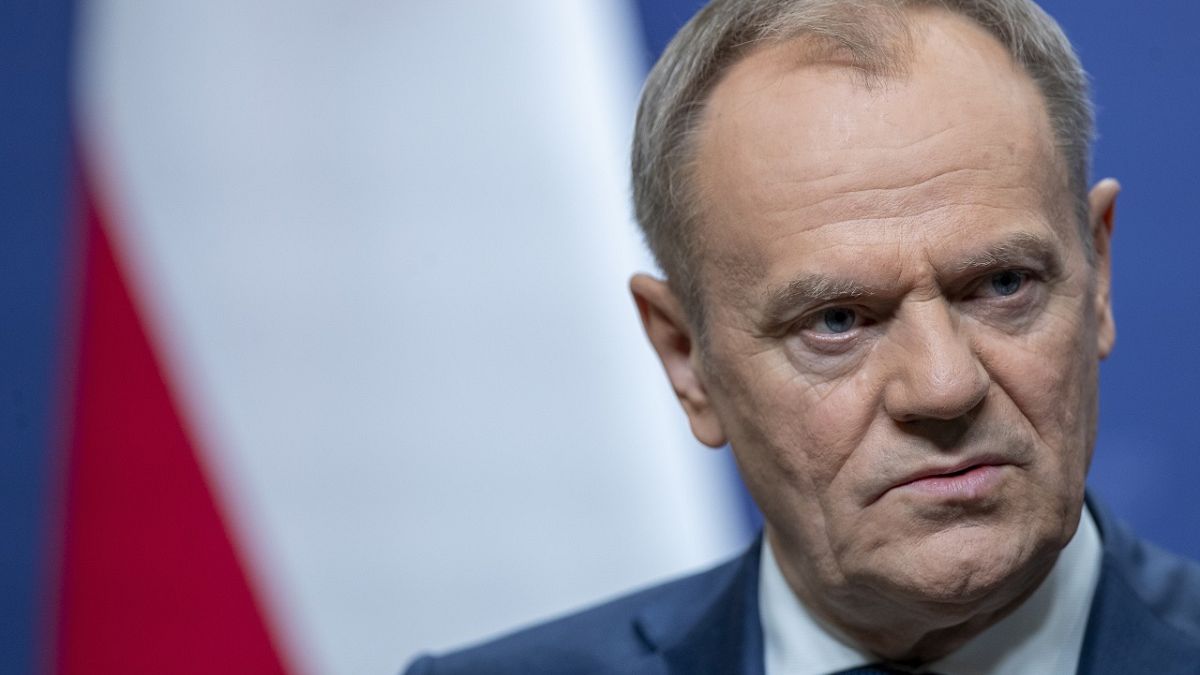World
Number of NATO allies spending 2% of GDP on defence to jump this year
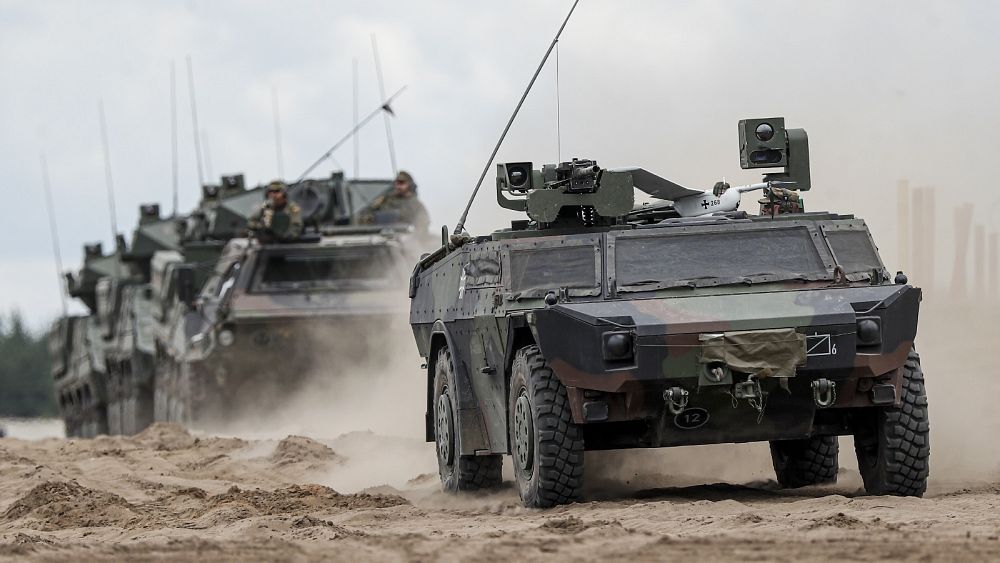
The number of NATO allies spending at least 2% of their Gross Domestic Product (GDP) on military spending is expected to jump this year, according to the alliance.
Estimates released on Friday by NATO show that at least 11 allies should reach the target set by the transatlantic military alliance. Only seven are believed to have reached the target in 2022.
Joining the three Baltic countries, Greece, Poland, the UK and the US in reaching the target this year are Hungary, Romania, Slovakia and new ally Finland.
Poland is now forecast to overtake the US when spending is compared to GDP but in real terms, the scale of the investment is much different.
Washington is seen spending $860 billion (€788 billion) on defence expenditure this year, dwarfing Poland’s $29 billion (€26.6 billion) projection.
The US’s huge spending in the sector is the main reason NATO as a whole spends more than 2% of GDP on defence. When excluding Washington, defence spending for the alliance reaches just 1.74% of GDP, but when its contribution is taken into account, the share soars to 2.64% of GDP.
This uneven burden-sharing has been a source of criticism from Washington for years and took a whole new dimension on 24 February 2022 when Russia launched a full-scale invasion of Ukraine, in effect bringing full-fledged conventional war back on European soil.
The aggression spurred European allies to announce a ramp-up in military spending. German Chancellor Olaf Scholz, for instance, promised a Zeitenwende (‘change of era’) in defence policy and earmarked €100 billion for military investments in the country’s 2022 budget, more than double the figure from the 2021 budget.
The new figures were released just days before the leaders of the 31 members of the alliance gather in Vilnius for a two-day summit.
They are expected to make new spending pledges during their time in the Lithuanian capital as well as reaffirm their commitments to Ukraine, including the prospect of eventual membership. New regional plans to bolster the alliance’s interoperability and defence against growing global challenges should also be endorsed by the heads of state.
One topic likely to overshadow the beginning of the summit, however, is the fact that Sweden, which applied to join the alliance alongside Finland shortly after Russia launched its attack, still has its bid blocked by Turkey and Hungary. Membership in the military alliance needs unanimity.

World
EU preparing sanctions on Russia's 'shadow fleet' after cable damage

Countries in the region have been on alert following a string of incidents involving undersea cables and gas pipelines in the Baltic Sea since 2022.
The EU Foreign Policy chief has said the bloc is preparing sanctions on what it calls Russia’s ‘shadow fleet’ after an undersea power cable connecting Finland and Estonia was damaged in the Baltic Sea.
Kaja Kallas posted the joint statement from the EU Commission and the High Representative leading the investigation on X, saying the “suspected vessel is part of Russia’s shadow fleet, which threatens security and the environment, while funding Russia’s war budget.”
Kallas also said the EU was strengthening efforts to protect undersea cables, adding that there was no risk to regional electricity supplies.
That comes after Finnish authorities detained a Russian ship as part of an investigation into damage to the Estlink-2 power cable.
It carries electricity from Finland to Estonia across the Baltic Sea and went down on Wednesday.
Finnish police and border guards boarded the Eagle S vessel on Thursday and took over the command bridge, Helsinki Police Chief Jari Liukku said at a press conference.
The vessel was being held in Finnish territorial waters, police said.
The Eagle S is flagged in the Cook Islands but was described by Finnish customs officials and the European Union’s executive commission as part of Russia’s shadow fleet of fuel tankers.
Those are aging vessels with obscure ownership, acquired to skirt Western sanctions and operating without Western-regulated insurance.
Russia’s use of the vessels has raised environmental concerns about accidents given their age and uncertain insurance coverage.
The Eagle S’ anchor is suspected of causing damage to the cable, Yle television reported, citing police statements.
The Estonian government met in emergency session over the incident.
The shadow tankers “are helping Russia to earn funds that will aid Russian hybrid attacks,” Prime Minister Kristen Michal said at a news conference.
“We need to improve the monitoring and protection of critical infrastructure both on land and on sea.”
He said repairs to the cable could take as long as seven months.
“Repeated damage to Baltic Sea infrastructure signals a systemic threat, not mere accidents,” Estonia’s President Alar Karis said on X.
“Estonia will take action to counter this threat, together with Finland and other NATO allies.”
On high alert
Countries in the region have been on alert following a string of incidents involving undersea cables and gas pipelines in the Baltic Sea since 2022.
Two data cables — one running between Finland and Germany and the other between Lithuania and Sweden — were severed in November.
Germany’s defence minister said officials had to assume the incident was “sabotage,” but he didn’t provide evidence or say who might have been responsible.
And the Nord Stream pipelines that once brought natural gas from Russia to Germany were damaged by underwater explosions in September 2022.
Authorities have said the cause was sabotage and launched criminal investigations.
World
Saudi executions rose sharply in 2024

World
Israel launches strikes in Yemen on Houthi military targets, IDF says
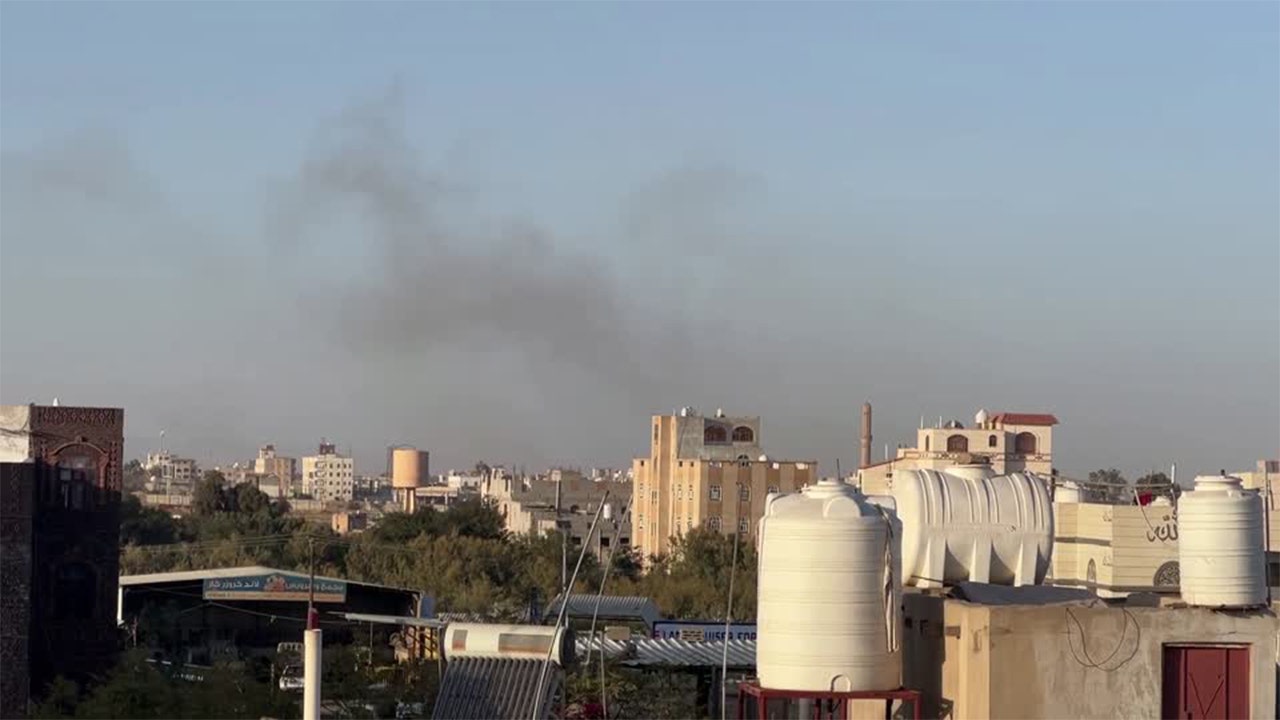
The Israeli military claimed responsibility for a series of airstrikes in Yemen on Thursday that hit Sana’a International Airport and other targets in the Houthi-controlled capital.
The Israel Defense Forces said the strikes targeted military infrastructure used by the Houthis to conduct acts of terrorism.
“The Houthi terrorist regime has repeatedly attacked the State of Israel and its citizens, including in UAV and surface-to-surface missile attacks on Israeli territory,” the IDF said in a statement.
“The targets that were struck by the IDF include military infrastructure used by the Houthi terrorist regime for its military activities in both the Sana’a International Airport and the Hezyaz and Ras Kanatib power stations. In addition, the IDF struck military infrastructure in the Al-Hudaydah, Salif, and Ras Kanatib ports on the western coast.”
PROJECTILE FROM YEMEN STRIKES NEAR TEL AVIV, INJURING MORE THAN A DOZEN: OFFICIALS
Black smoke rises near Sana’a International Airport in Yemen after reported Israeli airstrikes. (Reuters)
The strikes come days after Israel’s defense minister promised retaliation against Houthi leaders for missile strikes launched at Israel from Yemen.
Houthi rebels, who control most of northern Yemen, have fired upon Israel for more than a year to support Hamas terrorists at war with the Jewish State. The Houthis have attempted to enforce an embargo on Israel by launching missiles and drones at cargo vessels crossing the Red Sea – a major shipping lane for international trade.
US NAVY SHIPS REPEL ATTACK FROM HOUTHIS IN GULF OF ADEN
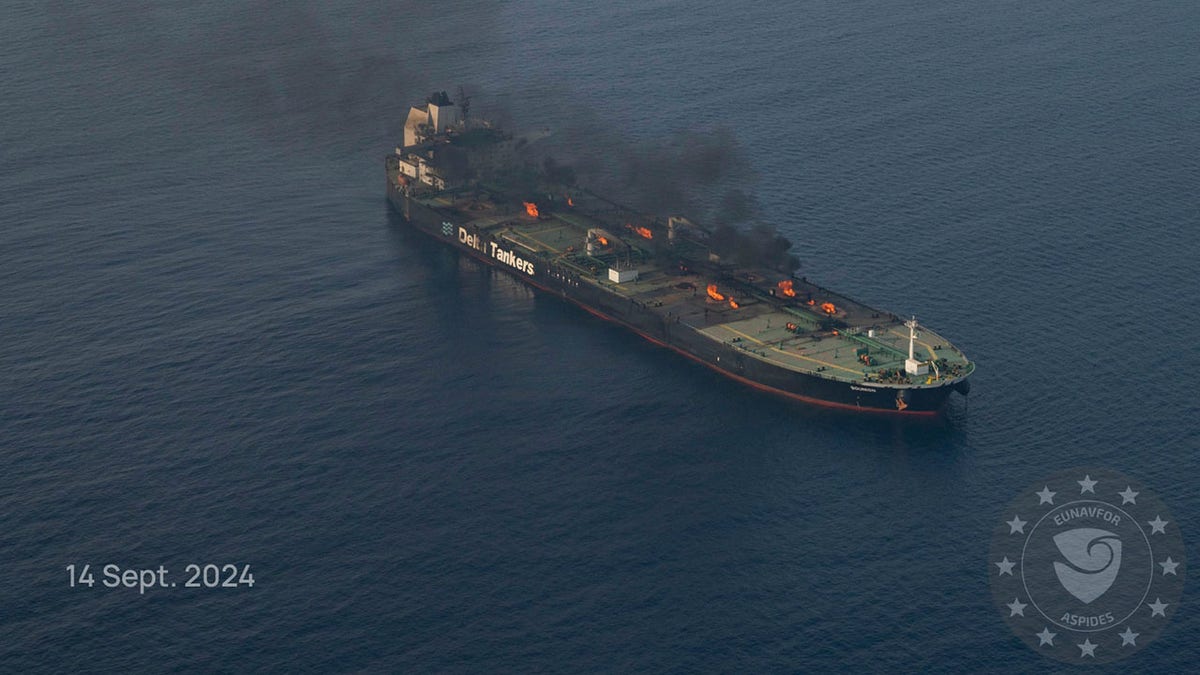
This photo released by the European Union’s Operation Aspides naval force shows the oil tanker Sounion burning in the Red Sea following a series of attacks by Yemen’s Houthi rebels, on Saturday Sept. 14, 2024. (European Union’s Operation Aspides via AP)
Overall, the Houthis have launched over 200 missiles and 170 drones at Israel since Hamas’s Oct. 7, 2023, massacre of 1,200 people. Since then, the Houthis have also attacked more than six dozen commercial vessels – particularly in the Bab-el-Mandeb, the southern maritime gateway to Egypt’s Suez Canal.
On Saturday, a projectile launched into Israel from Yemen struck Tel Aviv and caused mild injuries to 16 people, Israeli officials said. The incident was a rare occasion where Israeli defense systems failed to intercept an attack.
NETANYAHU WARNS HOUTHIS AMID CALLS FOR ISREAL TO WIPE OUT TERROR LEADERSHIP AS IT DID WITH NASRALLAH, SINWAR
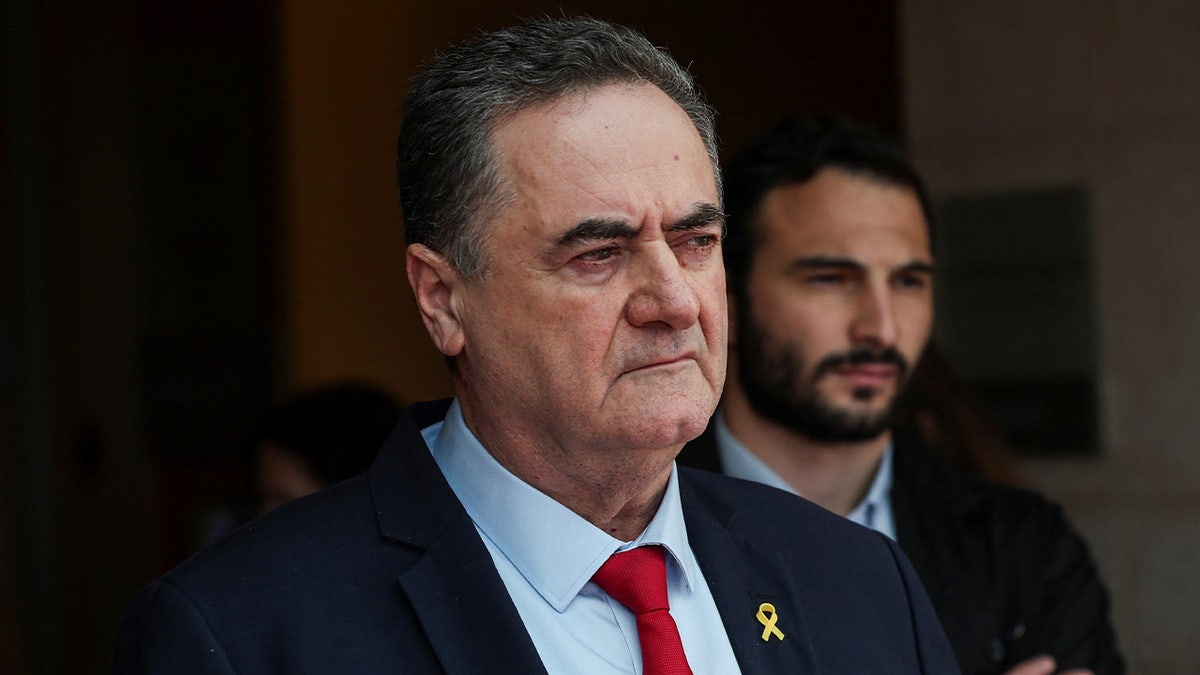
Israeli Defense Minister Israel Katz looks on, amid the ongoing conflict in Gaza between Israel and Hamas, in Jerusalem, November 7, 2024. (REUTERS/Ronen Zvulun)
Israel retaliated by striking multiple targets in areas of Yemen under Houthi control, including power plants in Sana’a.
Israeli leaders have vowed to eliminate Houthi leadership if the missile and drone attacks do not cease.
On Monday, Israeli Defense Minister Israel Katz said, “We will strike their strategic infrastructure and decapitate their leaders. Just as we did to [former Hamas chief Ismail] Haniyeh, Sinwar and Nasrallah, in Tehran, Gaza and Lebanon – we will do in Hodeidah and Sanaa.”
Prime Minister Benjamin Netanyahu has also urged Israelis to be “patient” and suggested that soon the military will ramp up its campaign against the Houthis.
“We will take forceful, determined and sophisticated action. Even if it takes time, the result will be the same,” he said. “Just as we have acted forcefully against the terror arms of Iran’s axis of evil, so too will we act against the Houthis.”
Fox News Digital’s Amelie Botbol contributed to this report.
-
/cdn.vox-cdn.com/uploads/chorus_asset/file/24924653/236780_Google_AntiTrust_Trial_Custom_Art_CVirginia__0003_1.png)
/cdn.vox-cdn.com/uploads/chorus_asset/file/24924653/236780_Google_AntiTrust_Trial_Custom_Art_CVirginia__0003_1.png) Technology6 days ago
Technology6 days agoGoogle’s counteroffer to the government trying to break it up is unbundling Android apps
-

 News7 days ago
News7 days agoNovo Nordisk shares tumble as weight-loss drug trial data disappoints
-

 Politics7 days ago
Politics7 days agoIllegal immigrant sexually abused child in the U.S. after being removed from the country five times
-

 Entertainment1 week ago
Entertainment1 week ago'It's a little holiday gift': Inside the Weeknd's free Santa Monica show for his biggest fans
-

 Lifestyle1 week ago
Lifestyle1 week agoThink you can't dance? Get up and try these tips in our comic. We dare you!
-
/cdn.vox-cdn.com/uploads/chorus_asset/file/25672934/Metaphor_Key_Art_Horizontal.png)
/cdn.vox-cdn.com/uploads/chorus_asset/file/25672934/Metaphor_Key_Art_Horizontal.png) Technology2 days ago
Technology2 days agoThere’s a reason Metaphor: ReFantanzio’s battle music sounds as cool as it does
-

 Technology1 week ago
Technology1 week agoFox News AI Newsletter: OpenAI responds to Elon Musk's lawsuit
-

 News3 days ago
News3 days agoFrance’s new premier selects Eric Lombard as finance minister

